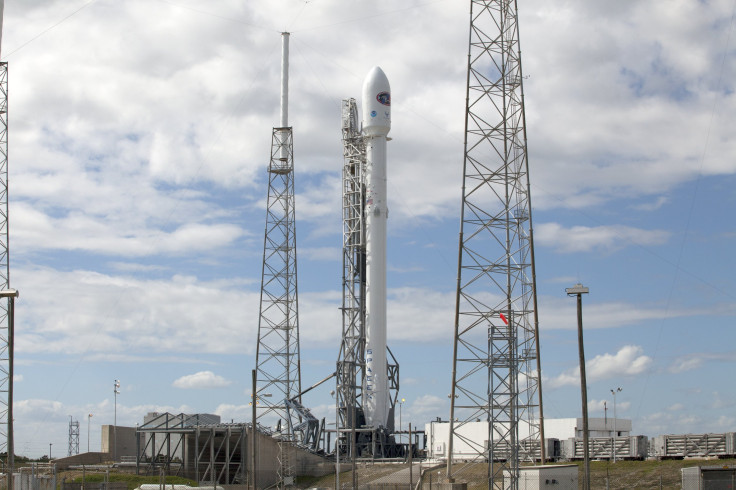SpaceX Launch Live Stream: Watch The Third Attempt For NASA DSCOVR Satellite, Rocket Landing Here

Take three! The Deep Space Climate Observatory (DSCOVR) launch has been scrubbed twice already, but the forecast is favorable for a Wednesday afternoon attempt. The DSCOVR launch is now scheduled for 6:03 p.m. EST from Cape Canaveral Air Force Station in Florida, and the live stream coverage of the event begins at 5 p.m. EST.
The National Oceanic and Atmospheric Administration, in partnership with NASA and the U.S. Air Force, originally set the launch of the solar wind satellite launch for Sunday, but it was scrubbed due to the loss of the Air Force's Eastern Range radar used to track the launch. Then on Tuesday, it was pushed back due to high winds.
Wednesday's weather forecast is at 90 percent a "go," and wind won't be a factor for the launch, according to NASA. If the launch has to be rescheduled yet again, the earliest next date is Feb. 20. "Today’s launch opportunity is the final one before a 'moon blackout' that begins Thursday and ends on Feb. 19. Because DSCOVR is traveling to deep space, the moon’s location on Feb. 12 through 19 would be close enough to DSCOVR to affect the spacecraft’s trajectory. This would require performing mid-course correction burns that would use more fuel than what is planned for the mission," NASA explains.
DSCOVR will be NOAA's new space weather workhorse satellite. Solar particles can affect Earth's communication systems and satellites, and improved warnings could prevent serious damage from a coronal mass ejection from the sun. The launch is also important for SpaceX. It is the company's first launch into deep space and second attempt to land a rocket on Earth. SpaceX tried to land the Falcon 9 rocket on an ocean platform after its fifth commercial resupply mission to the International Space Station. The rocket reach the target but exploded on impact. While SpaceX was forced to delay the DSCOVR launch, the Dragon spacecraft that spent the last month attached to the ISS splashed down in the Pacific Ocean.
The NASA DSCOVR launch live stream can be viewed below.
© Copyright IBTimes 2025. All rights reserved.






















